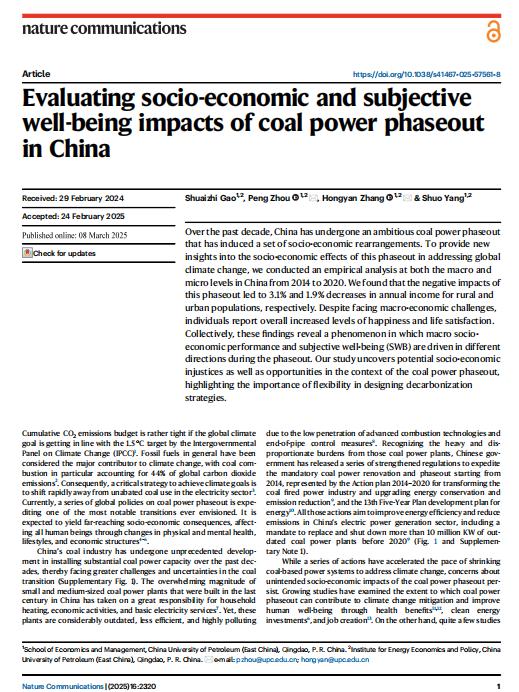Over the past decade, China has undergone an ambitious coal power phaseout that has induced a set of socio-economic rearrangements. To provide new insights into the socio-economic effects of this phaseout in addressing global climate change, we conducted an empirical analysis at both the macro and micro levels in China from 2014 to 2020. We found that the negative impacts of this phaseout led to 3.1% and 1.9% decreases in annual income for rural and urban populations, respectively. Despite facing macro-economic challenges, individuals report overall increased levels of happiness and life satisfaction. Collectively, these findings reveal a phenomenon in which macro socio-economic performance and subjective well-being (SWB) are driven in different directions during the phaseout. Our study uncovers potential socio-economic injustices as well as opportunities in the context of the coal power phaseout, highlighting the importance of flexibility in designing decarbonization strategies.
主要创新点:
1. 从宏观和微观层面分析煤电淘汰的广泛影响,采用DID和PSM等准实验方法提供因果证据
2. 揭示了宏观居民收入下降(农村3.1%、城市1.9%)与个体主观幸福感提升(0.398分)的反向变动现象,量化了主观幸福感的经济价值
3. 深入剖析不同地区和人群的异质性机制,强调将主观幸福感纳入脱碳政策设计的核心指标

原文链接:https://www.nature.com/articles/s41467-025-57561-8



